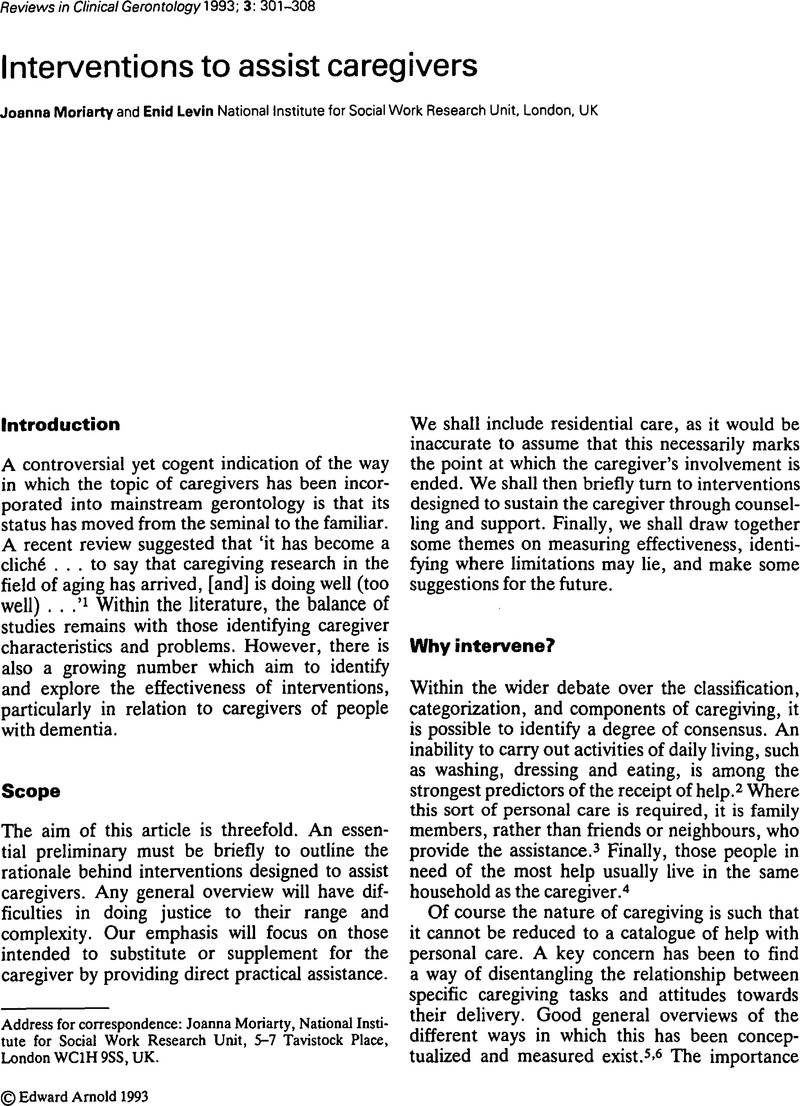Crossref Citations
This article has been cited by the following publications. This list is generated based on data provided by Crossref.
Curran, Julie SM
1995.
Current provision and effectiveness of day care services for people with dementia.
Reviews in Clinical Gerontology,
Vol. 5,
Issue. 3,
p.
313.



